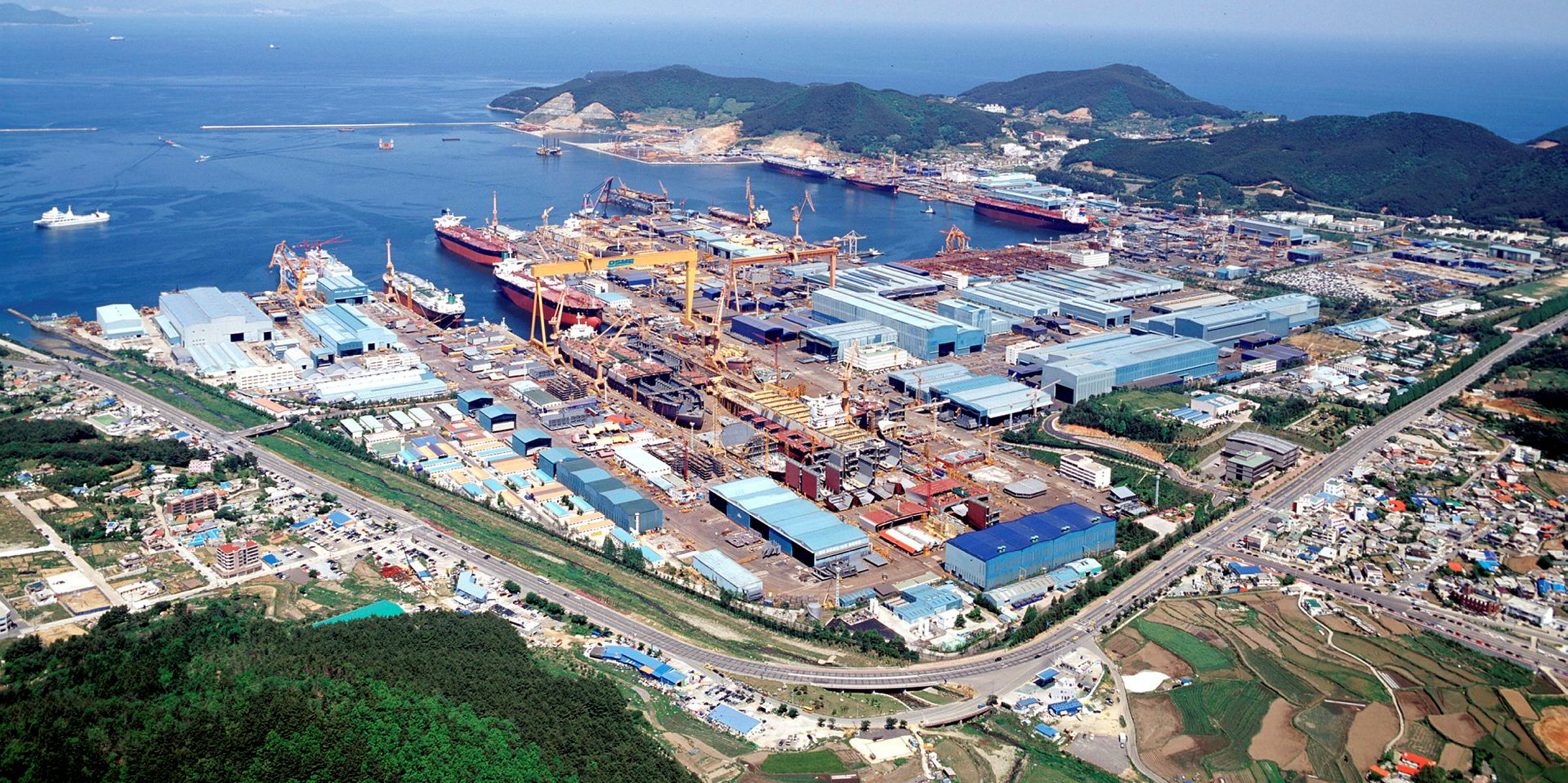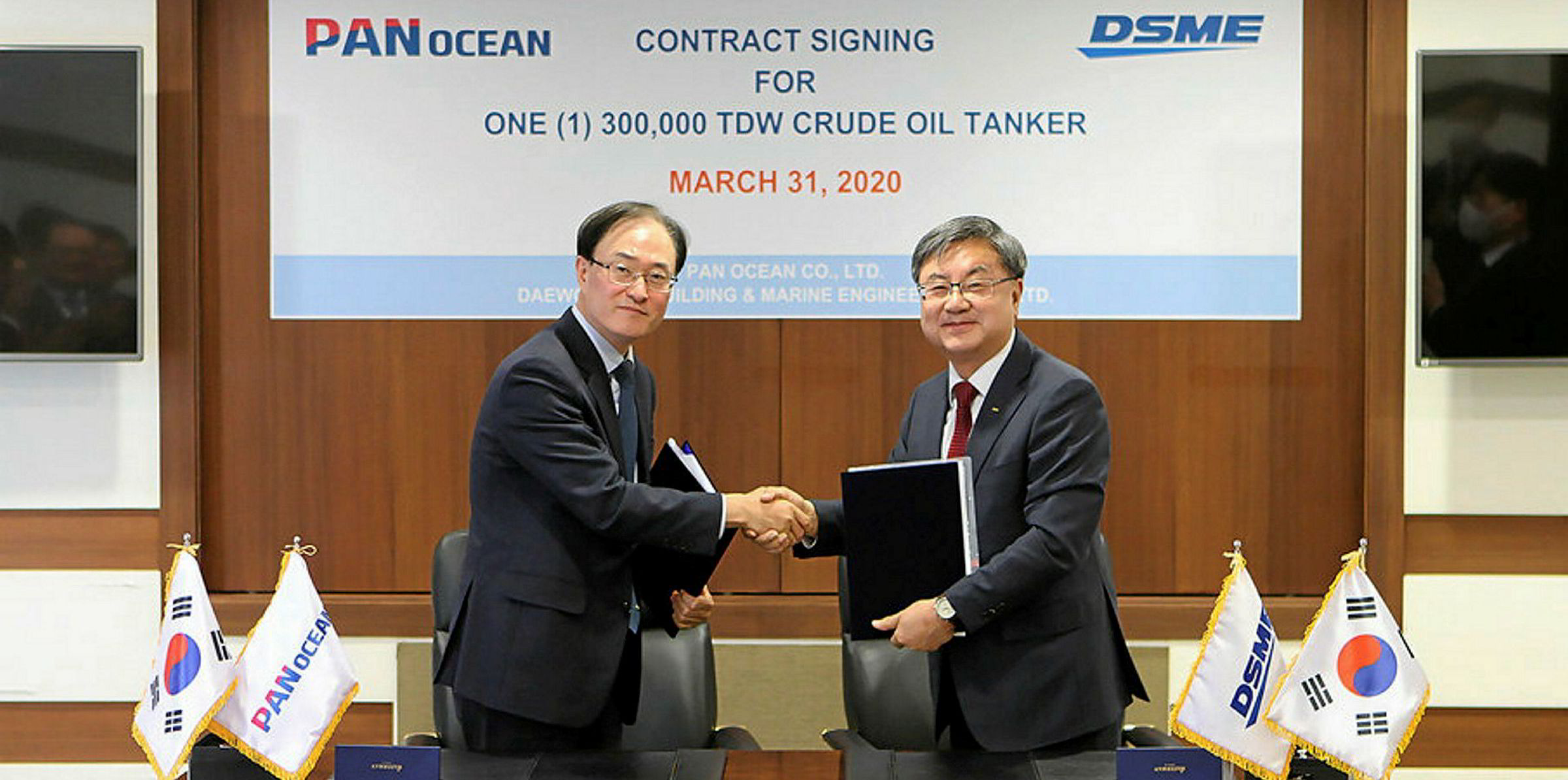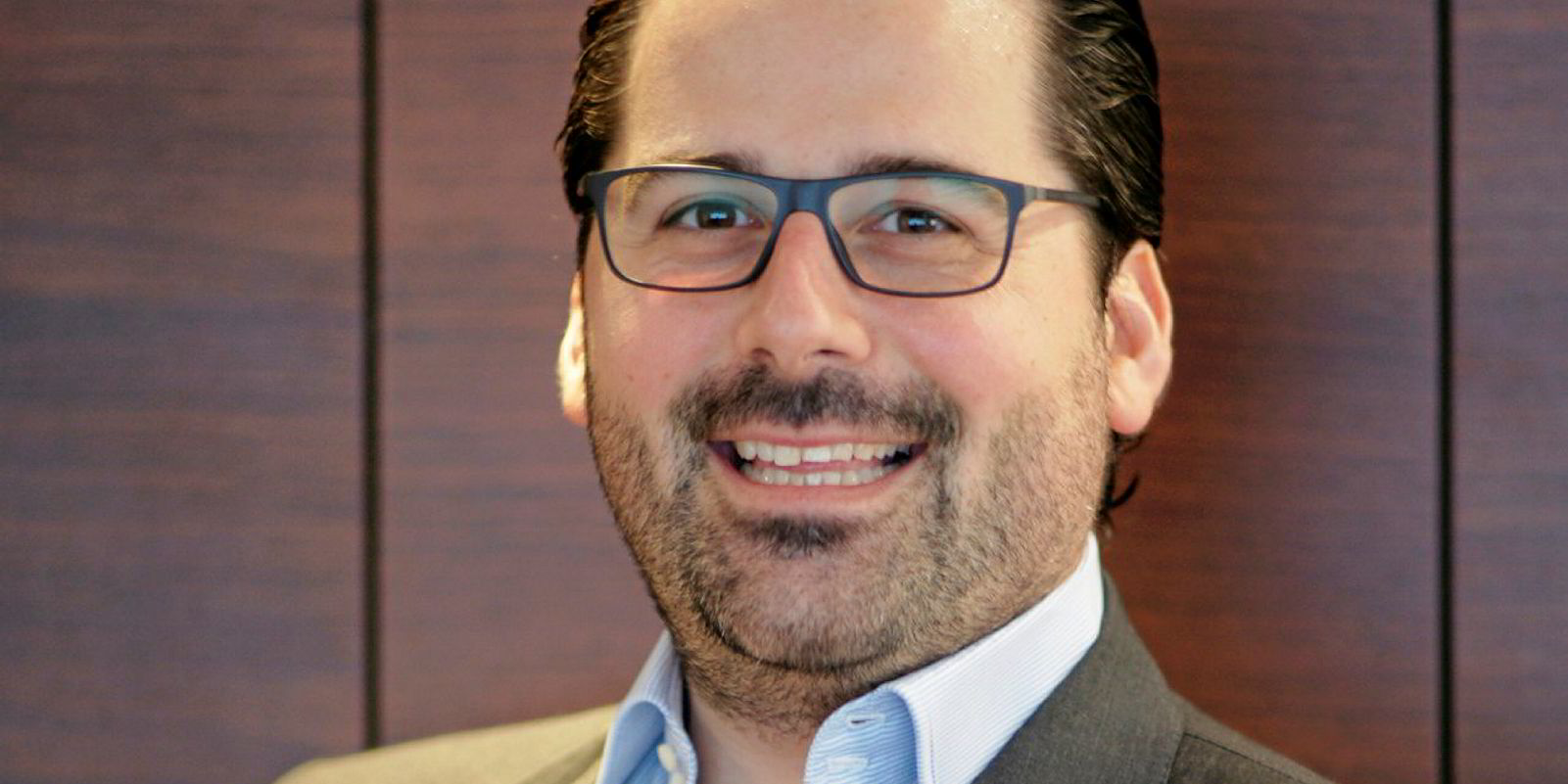Daewoo Shipbuilding & Marine Engineering has turned downbeat on the newbuilding outlook as the coronavirus pandemic continues to weigh on energy demand.
The South Korean shipbuilder secured just seven newbuilding orders worth $1.53bn in the first seven months of 2020, far below its full-year target of $7.21bn.
“Global trading is slowing down due to the Covid-19 outbreak. Newbuild ship orders will increase when the global recession is eased,” Seoul-listed DSME told investors in a web report.
“There are many uncertainties and volatilities due to the falling price of LNG and global recession. Continuous monitoring is required.”
Energy firms have been slow in sanctioning gas production projects due to market uncertainty this year, which has in turn resulted in weak newbuilding demand for LNG carriers.
Data from Clarksons Research shows only 12 orders have been placed in this sector so far this year, compared with 60 for the whole of 2019.
“Project sanctioning sentiment remains very weak,” said the research arm of shipbroking giant Clarksons, adding that the scope is limited for any company making final investment decision on new projects this year.
DSME, one of the world’s largest builders of LNG carriers by orderbook size, won three orders for LNG vessels between January and July. It secured six during the same period of last year.
Looking ahead, Qatar Petroleum has signed a slot-reservation deal with DSME for the delivery of 45 LNG carrier newbuildings between 2023 and 2027, and the first batch of orders could be finalised later this year.
Russia’s Novatek had been poised to seal an order for at least six 10 Arc7 LNG carriers, but the signing was understood to be postponed.
Meanwhile, Scorpio Bulkers has signed a letter of intent to spend somewhere between $265m and $290m building its first wind turbine installation vessel at DSME. The deal is expected to be formalised in the fourth quarter.
Better than others
With limited orders, DSME’s revenue fell to KRW 1.97trn ($1.6bn) in the second quarter from KRW 2.15trn in the same period of last year. Net profit fell to KRW 51.5bn from KRW 145bn, with negative impact from a stronger won believed to be partially offset by weak steel price.
The company recorded a profit of KRW 294bn in the first half of this year, compared with a profit of KRW 341bn during the corresponding period of 2019.
Other South Korean shipbuilding majors have posted weaker second-quarter results.
Korea Shipbuilding & Offshore Engineering (KSOE), the Hyundai Heavy Industries Holdings subsidiary that controls the group's shipyards, slumped into a net loss of KRW 3.38bn. Samsung Heavy Industries (SHI) recorded a net loss of KRW 708bn.





